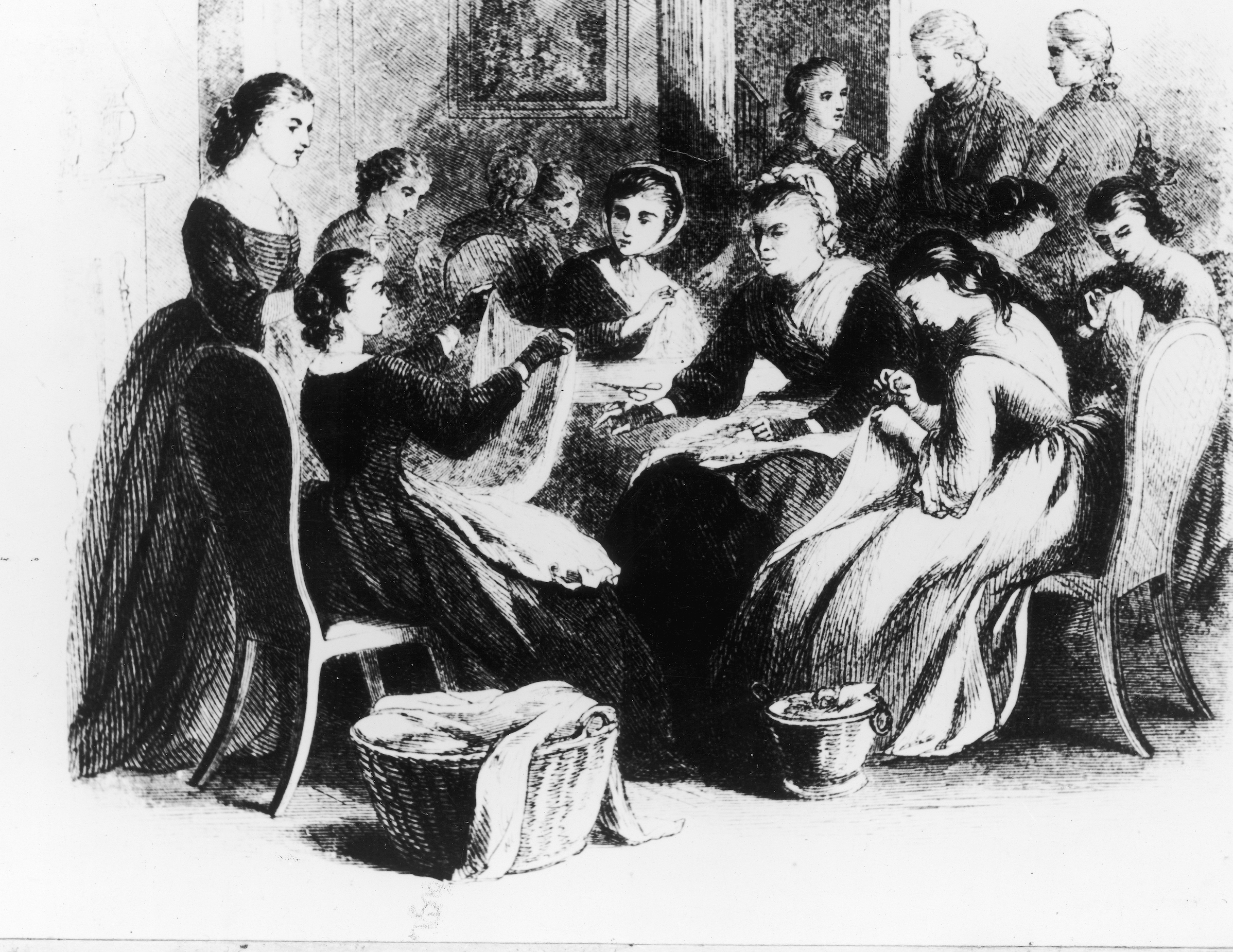
This post is in partnership with History Today. The article below was originally published at History Today.
Spinning yarn from cotton or flax is careful, necessary work that has become invisible in modern life. But at the dawn of the American Revolution, it was revolutionary. Women across the colonies organized spinning bees to protest British regulations and altered their purchasing habits to support boycotts, leveraging their domestic power to influence the revolution.
The story of these revolutionary women is rooted in the transformation of the consumer marketplace in the 18th century American colonies. In the 17th century, colonists mostly relied on local materials and infrequent shipments of supplies, but as settlements grew in size, they increasingly sought British goods. From Boston to Charleston, colonists could purchase the latest styles and eat from the finest china. Participation in this shared marketplace kept colonists in the British fold by connecting them to cultural trends and reminding them of their status in the Empire.
All of this changed with the Stamp Act of 1765. Angered by what they saw as unfair taxation, colonists weaponized the consumer landscape through non-importation and non-consumption agreements. These were a series of boycotts of British imports to put pressure on the British economy and force legislative change. The protests were successful and resulted in the repeal of the Stamp Act within a year. This first wave of boycotts was confined to the cities of New York, Boston and Philadelphia, but, as anti-British sentiment grew in the late 1760s and into the 1770s, so did the protests.
The collective action required by the non-importation movement spread across the colonies. A plantation owner in Virginia and a carpenter in Boston could act together against British taxation with one economic voice. “Private consumer experiences were transformed into public rituals,” wrote the historian T.H. Breen. The marketplace became a platform where colonists could publicly display their political preferences through their purchasing habits. Individual colonists and communities had no formal political voice; they did not have parliamentary representatives. But by wielding their economic power, they were able to change the law.
The movement’s focus on commercial goods meant that women, who were often responsible for running households, were able to take an active role. They could serve coffee instead of tea and dress their families in homespun cloth instead of imported chintz. Purchasing decisions that had long been rendered invisible by their association with housewifery became political statements.
Unmarried women also used the tools of femininity and domesticity to influence politics. Patriotic young women refused the company of men who bought boycotted goods and broke off relationships with those who would not sign the agreements. Published debates over the non-importation movement were imbued with the language of courtship. Patriots created characters like “Sophia Thrifty,” who coyly urged men to buy carefully, lest they lose the affections of their girlfriends.
Get your history fix in one place: sign up for the weekly TIME History newsletter
The most celebrated form of female political action, though, was the spinning bee: large gatherings organized by the women of a community where they spun yarn for textile production. Textile crafts were politically significant. The Wool Act of 1699 prohibited the colonies from exporting wool products to protect English producers from competition. This restriction frustrated many and scattered textile protests occurred throughout the 18th century. As the non-importation movement grew in popularity and anger over British regulations increased, the textile issue rose to the forefront once more. Colonists boycotted British cloth and sought local alternatives. When the war began, the uniforms and provisions needed for thousands of soldiers further increased demand for homespun textiles.
A wheelwright in Lexington, Mass., noted that he sold substantially more spinning wheels in the years leading up to the war. A 1769 article in the Boston Gazette reported that 45 women in Lexington produced 602 knots of linen and 246 knots of cotton in one day. Spinning schools opened in Boston. Newspapers printed stories about elderly women who took up the craft for the first time and young girls who spun from dawn until dusk. Unlike the rioting and shouting that accompanied male political action, spinning yarn was palatable and respectable, worthy of unstinted praise. Even today, the values these women projected—sacrifice, dedication and single-minded patriotism—are celebrated as fundamental American traits.
Unlike other Enlightenment ideologies, which often ignored women completely, American Republicanism has long emphasized the “Republican Mother,” a woman who raises good sons to sacrifice their lives for their country. But the “Republican Mother” does not tell the full story. Female political power was not passively channeled through husbands and sons. Revolutionary women were active participants in political society; they organized events, made strategic purchasing decisions and sacrificed personal relationships. Their dedication and hard work did not go unnoticed: the spinning bee became a symbol of the revolutionary woman. Even today, the spinning wheel is the symbol of the Daughters of the American Revolution.
Women could not serve in the Continental Congress or vote on whether Washington became the first president. But they were active participants in the shaping of the new nation. They organized themselves in large numbers, using their domestic power to support political movements and make lasting change. It is easy to get lost in stories of scrappy soldiers, but it is important to remember these women, too, weaving a new future between their fingers.
Marta Olmos researches 18th-century textiles, dress history and the history of women’s work.
More Must-Reads from TIME
- Cybersecurity Experts Are Sounding the Alarm on DOGE
- Meet the 2025 Women of the Year
- The Harsh Truth About Disability Inclusion
- Why Do More Young Adults Have Cancer?
- Colman Domingo Leads With Radical Love
- How to Get Better at Doing Things Alone
- Michelle Zauner Stares Down the Darkness
Contact us at letters@time.com